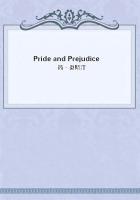So far as any effect from these exposures was concerned, they were as harmless as those exposures of fraudulent spiritistic mediums which from time to time are supposed to shake the spiritistic superstition to its foundations. They really do nothing of the kind; the table-tippings, rappings, materializations, and levitations keep on as before; and I do not believe that the exposure of the novelist who has been the latest victim of the parallel column will injure him a jot in the hearts or heads of his readers.
II.
I am very glad of it, being a disbeliever in punishments of all sorts.
I am always glad to have sinners get off, for I like to get off from my own sins; and I have a bad moment from my sense of them whenever another's have found him out. But as yet I have not convinced myself that the sort of thing we have been considering is a sin at all, for it seems to deprave no more than it dishonors; or that it is what the dictionary (with very unnecessary brutality) calls a "crime" and a "theft." If it is either, it is differently conditioned, if not differently natured, from all other crimes and thefts. These may be more or less artfully and hopefully concealed, but plagiarism carries inevitable detection with it. If you take a man's hat or coat out of his hall, you may pawn it before the police overtake you; if you take his horse out of his stable, you may ride it away beyond pursuit and sell it;
if you take his purse out of his pocket, you may pass it to a pal in the crowd, and easily prove your innocence. But if you take his sermon, or his essay, or even his apposite reflection, you cannot escape discovery.
The world is full of idle people reading books, and they are only too glad to act as detectives; they please their miserable vanity by showing their alertness, and are proud to hear witness against you in the court of parallel columns. You have no safety in the obscurity of the author from whom you take your own; there is always that most terrible reader, the reader of one book, who knows that very author, and will the more indecently hasten to bring you to the bar because he knows no other, and wishes to display his erudition. A man may escape for centuries and yet be found out. In the notorious case of William Shakespeare the offender seemed finally secure of his prey; and yet one poor lady, who ended in a lunatic asylum, was able to detect him at last, and to restore the goods to their rightful owner, Sir Francis Bacon.
In spite, however, of this almost absolute certainty of exposure, plagiarism goes on as it has always gone on; and there is no probability that it will cease as long as there are novelists, senators, divines, and journalists hard pressed for ideas which they happen not to have in mind at the time, and which they see going to waste elsewhere. Now and then it takes a more violent form and becomes a real mania, as when the plagiarist openly claims and urges his right to a well-known piece of literary property. When Mr. William Allen Butler's famous poem of "Nothing to Wear" achieved its extraordinary popularity, a young girl declared and apparently quite believed that she had written it and lost the MS. in an omnibus. All her friends apparently believed so, too; and the friends of the different gentlemen and ladies who claimed the authorship of "Beautiful Snow" and "Rock Me to Sleep" were ready to support them by affidavit against the real authors of those pretty worthless pieces.
From all these facts it must appear to the philosophic reader that plagiarism is not the ****** "crime" or "theft" that the lexicographers would have us believe. It argues a strange and peculiar courage on the part of those who commit it or indulge it, since they are sure of having it brought home to them, for they seem to dread the exposure, though it involves no punishment outside of themselves. Why do they do it, or, having done it, why do they mind it, since the public does not? Their temerity and their timidity are things almost irreconcilable, and the whole position leaves one quite puzzled as to what one would do if one's own plagiarisms were found out. But this is a mere question of conduct, and of infinitely less interest than that of the nature or essence of the thing itself.














